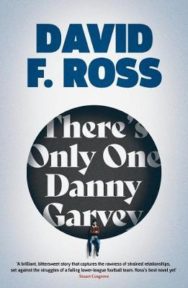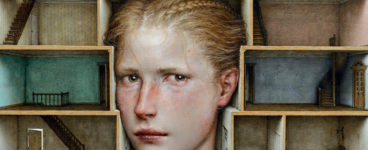‘The publishing industry is grappling with how to promote writers and books in a post-pandemic world, and the solutions reached by the students are not only impressively creative but hugely practical and deliverable.’
David F Ross is a brilliant novelist, growing his fanbase with every release. When he is not writing, he is an architect – director of Keppie Design – and a facilitator of projects for design students at the City of Glasgow College. Last year, he oversaw the the students designing what book festival spaces might look like in the future, and here, we present the students ideas. Exciting food for thought!
There’s Only One Danny Garvey
By David F. Ross
Published by Orenda Books
The Outliers Book Festival: A Design for the Future
In the latter part of2020, this most unusual of years, I was invited to mentor design students from City of Glasgow College for an interesting project. Through collaborative practice, the BA Design Practice Degree -4th year (hon) students were to explore the possibilities for the creation of a new literary festival for 2021, planned to celebrate literature, and inspired by the ideas of togetherness, connections, relationships, physicality, meetings and rendezvous.
The students were free to decide whether the festival would feature a specific site, several variable locations, or even a digital ‘virtual’ space. This decision would depend on their findings when researching the target group, the project’s context and the possible interpretations of “meeting place”.
This process culminated in the form of a client presentation to the festival ‘organiser’, Karen Sullivan; the award-winning publisher of Orenda Books.
Designers are encouraged to understand how things have been and to analyse how they are now, to explore how they might be. This is the essence of design process. The global pandemic has turned our traditional analytical approaches upside down. Where the commerce of collaboration and connection once drove the type of spaces we wanted to be in, fear of contamination now controls them.
Book Festivals are facing hugely complex challenges as an unsurprising consequence. Paradoxically, there has been a rise in the sales of books and a dramatic resurgence in the popularity of reading. Taking cognisance of this, the City of Glasgow College design students responded imaginatively.
Fresh Horizons
The Fresh Horizons pavilion is a pop up venue that can be placed in any kind of location, from warehouses, school and university campuses and outdoor parks.
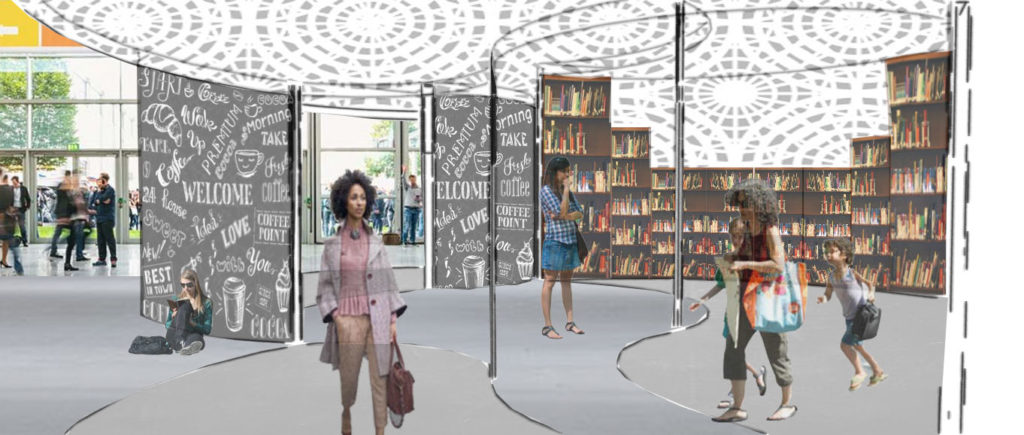
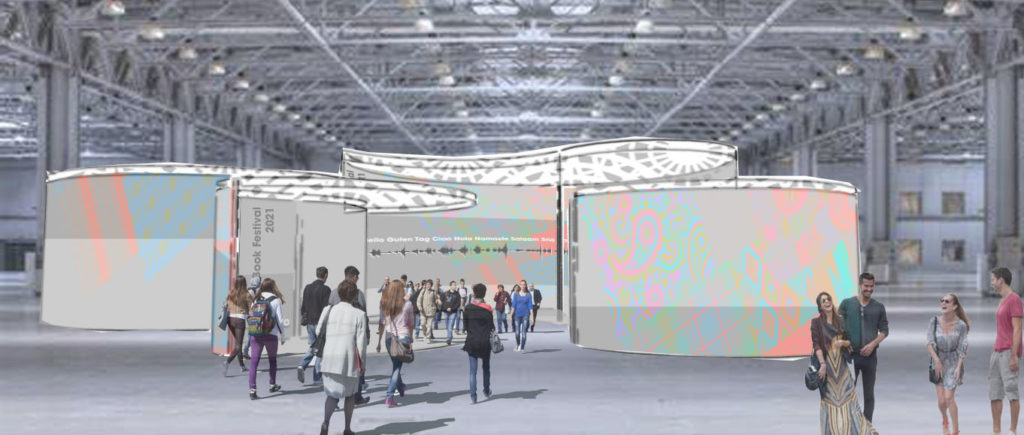
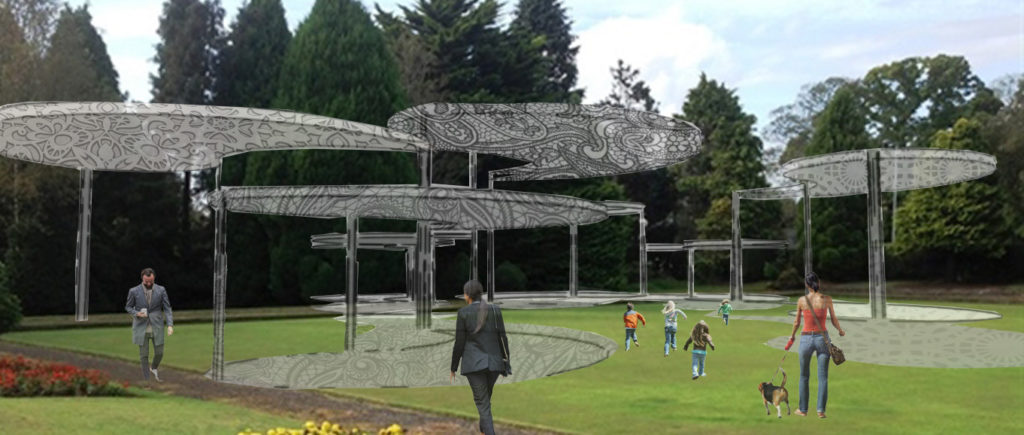
‘Our ‘Fresh Horizons’ pavilion is inspired by the Paisley pattern, which was in turn, inspired by the ‘Boteh’ of Persian origin, first incorporated into fabric designs in India. The Boteh is emblematic of the influence of other cultures and represents the aim of our project: a place to celebrate translated works of fiction from across the world.’
(Lynn and Martin)
MIND
MIND celebrates science-fiction by offering a daring authorless space with immersive, interactive exhibits using apps and AI technology.
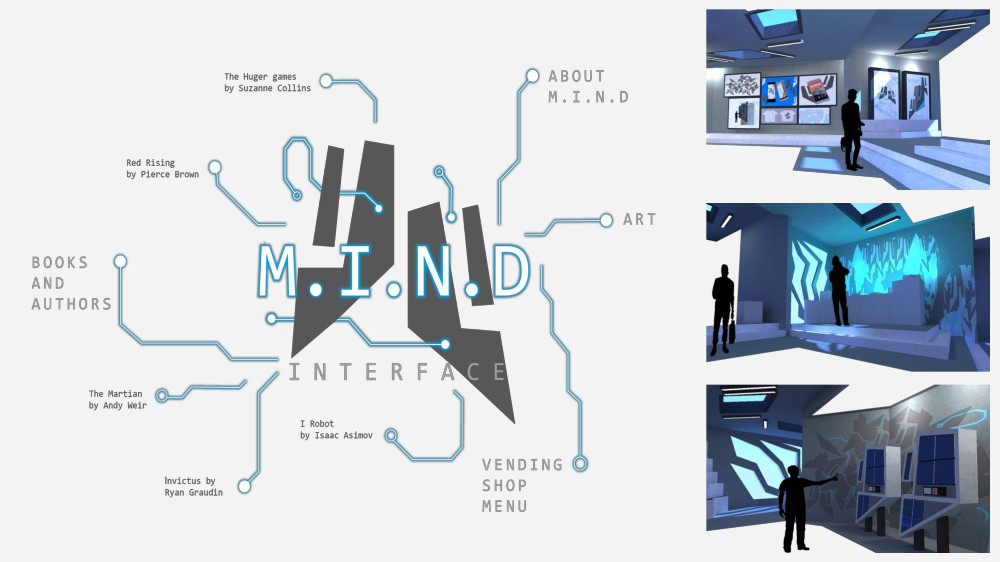
Our Modular Interactive Novel Design (M.I.N.D) offers a unique experience in which festival users can immerse themselves in not only the structure but the atmosphere of the ongoing festival. Those with the passion for reading can discuss, share, listen, purchase, and even participate in a multitude of activities and events that encapsulate the genre of Sci-Fi. As a group, we believe that the project we have created offers a realistic direction for the future of book festivals. With the use of modern design techniques and innovative thought processes, we believe we have created an effective, forward thinking design solution to the Outliers Book Festival brief.
(Jade, Lewis, Becca and Beth)
The group behind MIND have even designed their own merchandise too.
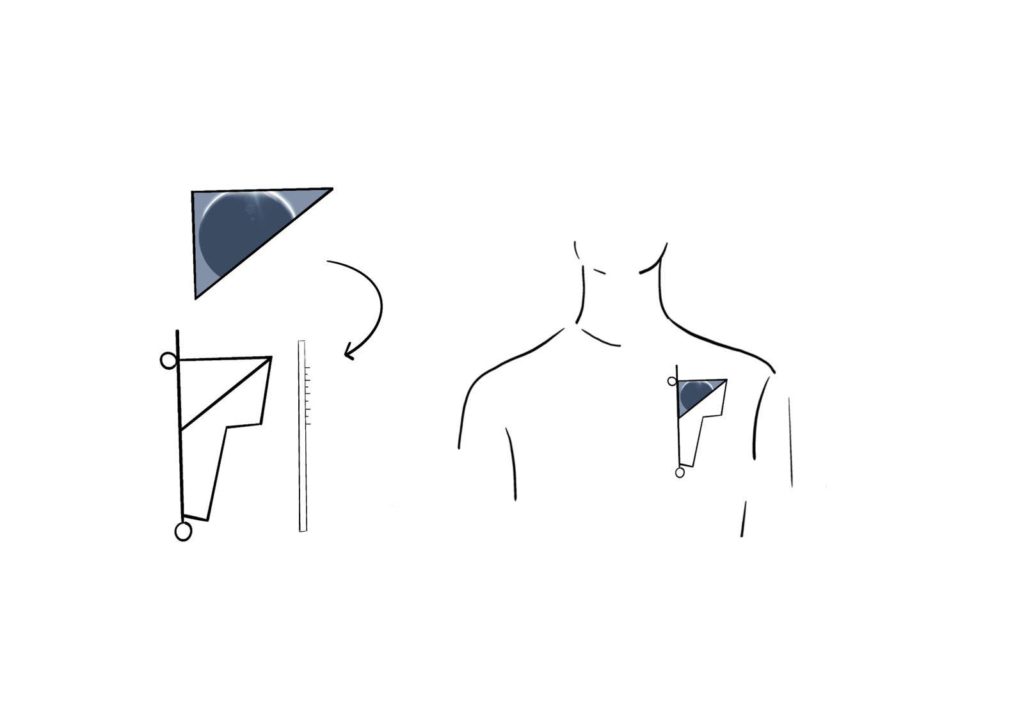
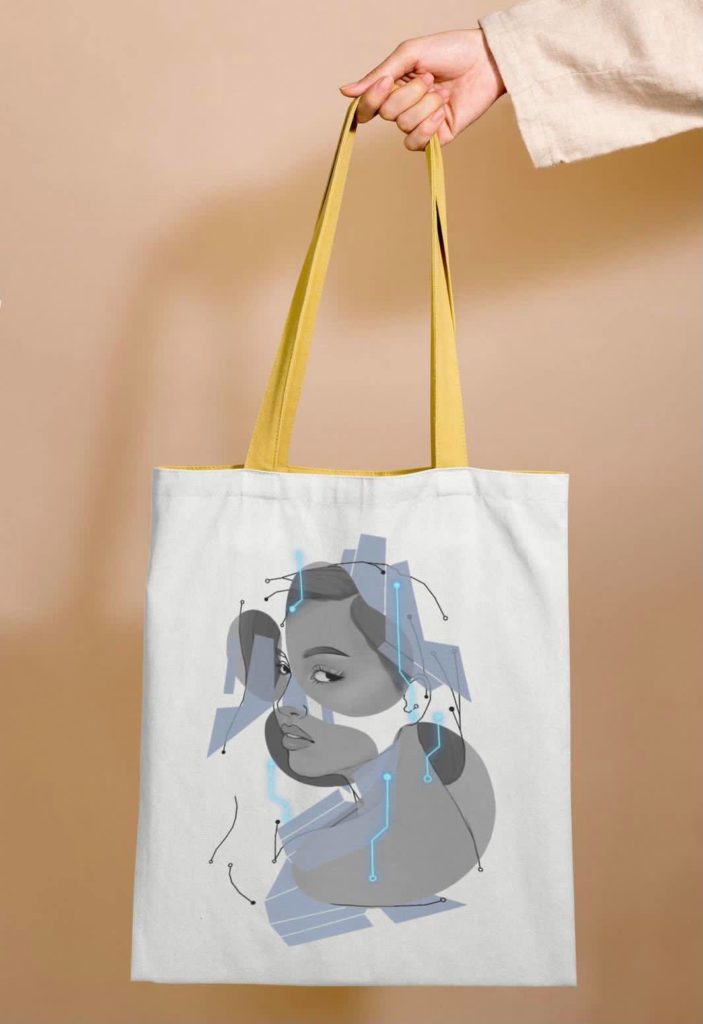
Nexus Train
Alice and Stephanie’s ‘Nexus Train’ proposal features a moving festival with events taking place on a series of trains. Individual carriages are dedicated to individual authors or specific genres of literature depending on theme. Reading and events can be given from the trains to socially distanced audiences on the platforms. A brilliant graphic design advertising campaign promotes author readings and visual experiences from the outside of the carriages and on the platforms of the towns and cities on six different routes.
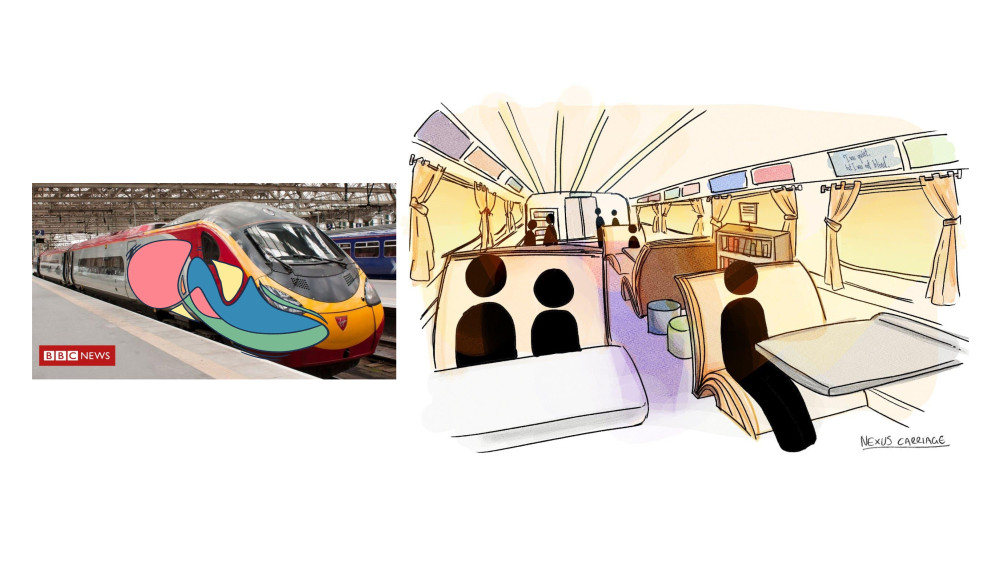

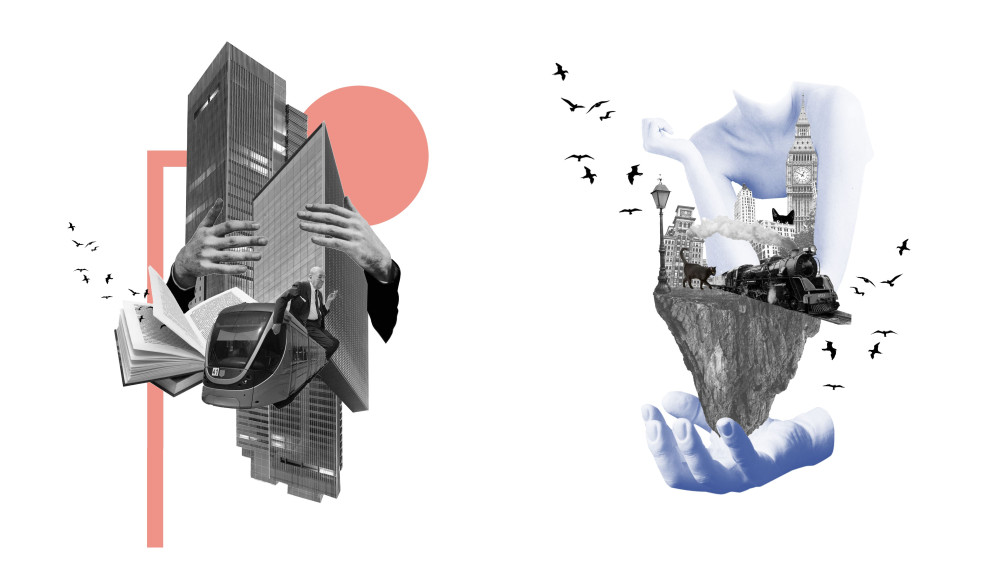
The Pheonix
Meanwhile, ‘The Phoenix’ – by Calum, Caitlin, Jordan and Nichola – is based at the Barras Art and Design (BAaD); an already established creative hub which is part of Glasgow’s East End transformation. This design centres on sustainability and personal interaction with opportunities for book lovers to design and print new book covers for their favourite titles. Other components include the interactive Exchange Vendor; a curving timber structure which encourages the exchanging of books as way of ‘recycling’ literature.
The Pheonix is a walk-through pop up venue that incorporates interactive exhibits celebrating book design’
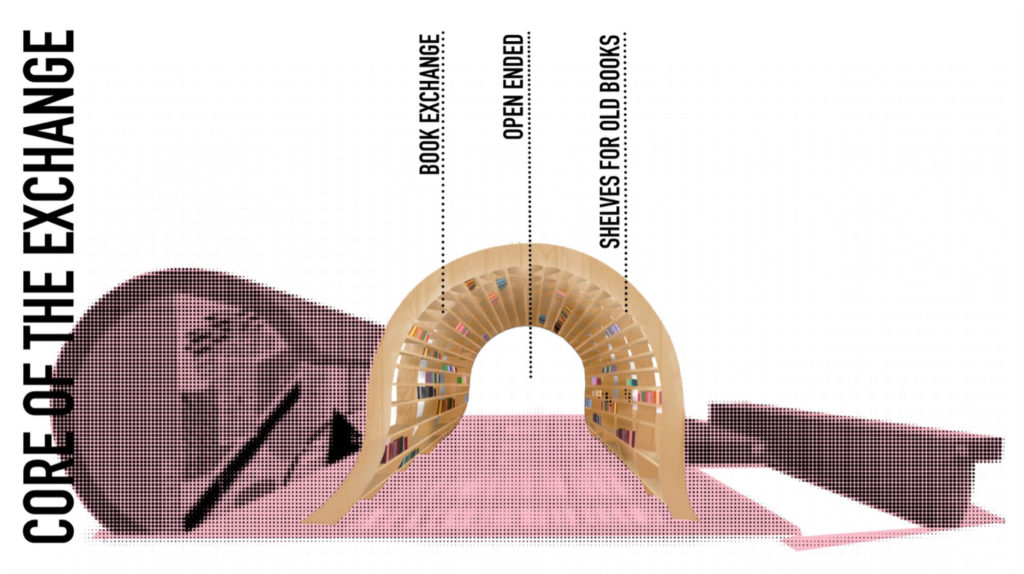
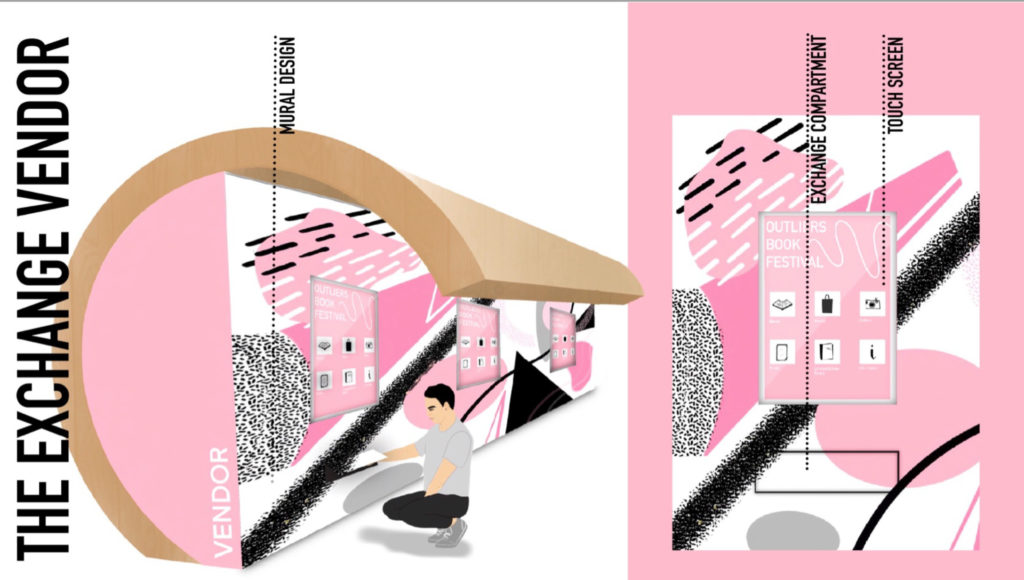
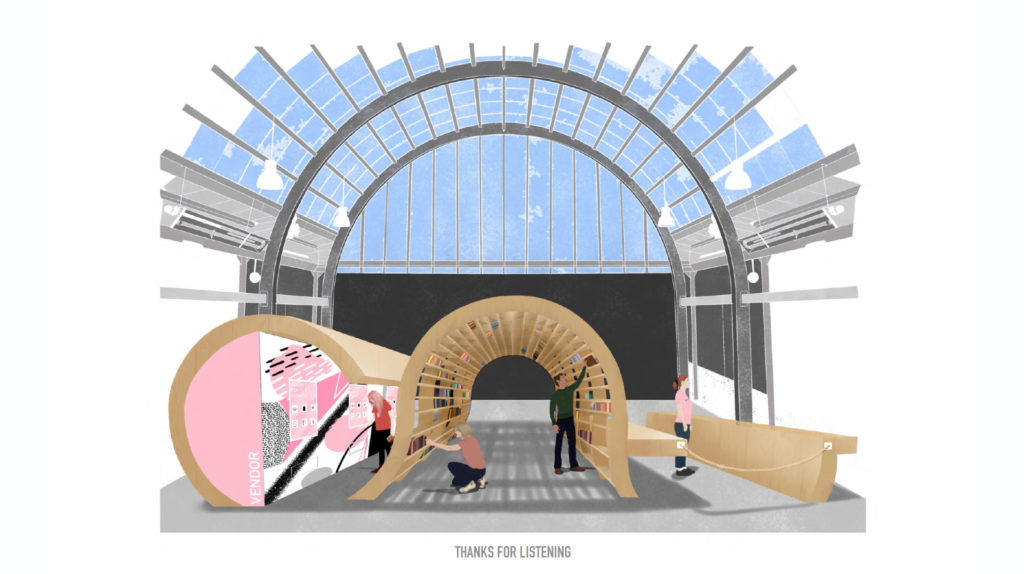
The City of Glasgow College design courses are fantastic explorations of real-world projects. They require the students to analyse and understand complex design considerations before developing creatively pragmatic solutions. The ‘Outliers Book Festival’ project is a perfect example of this. The publishing industry is grappling with how to promote writers and books in a post-pandemic world, and the solutions reached by the students are not only impressively creative but hugely practical and deliverable.
The engagement of ‘live clients’ in the education process is vital for all practice-based learning development but none more so than in the creative industries where successful solutions are often subjective. Understanding the brief from the perspective of the client, and then communicating responsive ideas clearly and confidently is the basis of our profession and these students have demonstrated how much they understand this already. It wouldn’t surprise me if many of these ideas feature in the book events of the future.
‘The presentations were engaging, enlightening and thought-provoking, and really do represent viable options for book festivals of the future. I loved the creativity … the potential for pop-up venues, vending machines for books and merchandise (essential in a post-Covid world?), moving a festival around the country via train to engage readers everywhere, themes of literacy and regeneration (sustainable literacy!) that have been placed at the heart of so much of what we, as publishers, hope to do. There were new forms of delivery, from 3D printing onsite and apps to enhance the festival experience through to AI technology and QR codes for ebooks, celebrations of international literature with the emphasis on oneness rather than being ‘foreign’, and original, artistic interpretations of familiar backdrops and even seating.
Our lives have changed dramatically in the last ten months or so, and we need to rethink the way we present books and authors, the way we engage readers, the way we embrace the newest technologies. With online events taking precedence, readers will undoubtedly demand to see more of this in the future, and creative ways to provide access will become integral to any festival planning. The students offered explosive food for thought … and the freshness, vibrancy, immediacy of their visions and ideas are really worth contemplating – and incorporating.’
(Karen Sullivan, Publisher, Orenda Books)
Perhaps more than other professions, designers crave contact with others; to be creative, to be stimulated, to be inspired and, yes, sometimes to disagree. All are essential and necessary means of the trial and error design process. An educational environment in which these things can return as before is a universally shared ambition, even if currently difficult to imagine. As a profession we evaluate problems in the wide context where we find them and explore solutions that overcome not only those known problems, but anticipated ones that may emerge out of new phenomena. This experience of this project will stand these students in very good stead for their own future careers as designers.
“The ‘Outliers Literary Festival’ Project brought together individuals in a multi-disciplinary student project. Each team demonstrated innovation and sophisticated interpretations to the brief. Their research demonstrated insights into key issues such as sustainability, community engagement, user experience and above all the needs of the client. There was a significant amount of research underpinning each proposal. I was most impressed with the final presentations which demonstrated a confident and articulate delivery to the panel. The students were all able to present a compelling narrative with supporting visuals clearly addressing the key points in the brief and taking cognisance of earlier client feedback discussed at the interim review.”
(John Baird. Curriculum Head, Faculty of Creative Industries, City of Glasgow College)
The students:
Jade Frame, Lewis McKechnie, Becca Collins, Beth Cowan, Alice Brown, Stephanie Boyd, Lynn Crew, Martin Poli, Calum Lockerbie, Caitlin Smith, Jordan Russell and Nichola McArthur.
Now, let’s concentrate on David’s talents as a novelist. He has just released his latest, There’s Only One Danny Garvey, set against the backdrop of lower league football. Here he is giving a wee taster reading.
There’s Only One Danny Garvey by David F. Ross is published by Orenda Books, priced £8.99.
ALSO IN THIS ISSUE
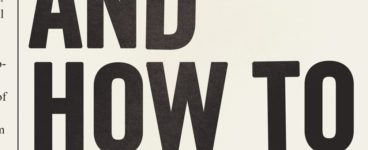
 News and How to Use It
News and How to Use It
‘At the very moment when the UK government recognised journalists as essential workers, the industry …





